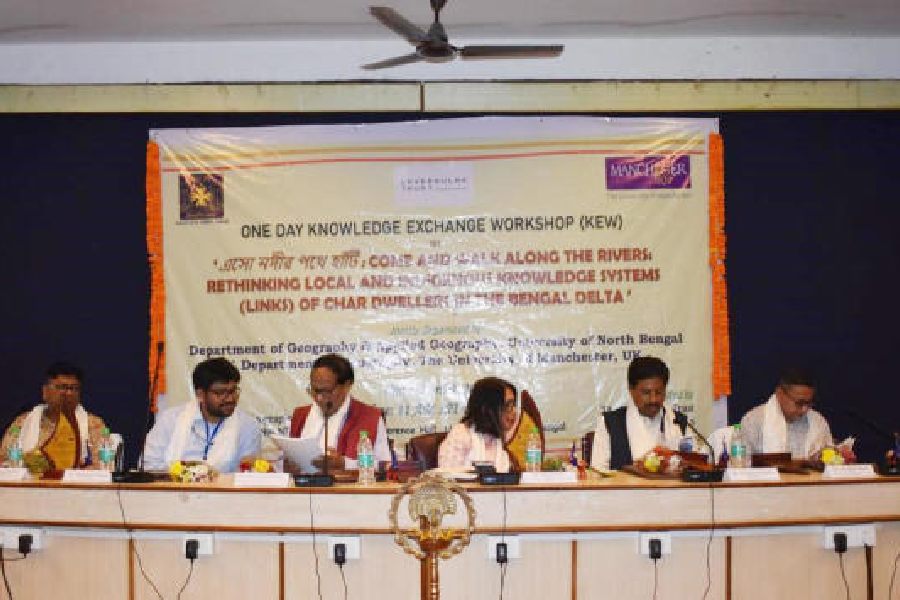A team of researchers from the North Bengal University (NBU) has been conducting a detailed field study on the changing dynamics of riverine life across Bengal in collaboration with the University of Manchester in the UK and Presidency University in Calcutta.
The NBU geography department is at the centre of this academic alliance.
It is playing a key role in exploring how the shifting courses of rivers, erosion,
silt deposition and environmental degradation are impacting communities along riverside areas.
Arindam Basak, the head of the geography department at NBU, said researchers have been travelling across riverine belts since April 4, from the Sunderbans in south Bengal to the riverbanks of the Teesta in the north.
“They are studying how these changes and natural calamities are influencing the daily lives, economy and survival of those who depend on rivers. They are gathering data on the ground to understand the broader social and ecological fallout,” he said.
The team includes the University of Manchester geographer Mehebub Sahana and Siliguri-based economist Upasak Das.
Recently, NBU hosted a seminar to present the early findings of the ongoing study.
“At the seminar, our talks ranged from the mangrove destruction in the Sunderbans and the erosion-prone riverbanks in Malda and Murshidabad to the dying flow of the Atreyee river in South Dinajpur district,” Basak added.
Basak pointed out that the research would also highlight how communities are struggling with shrinking access to clean drinking water, loss of livelihood due to the disappearance of fish in the Ganga, and growing disputes over the ownership of newly
formed sandbars.
“The aim of this collaborative research is not just to document the problems but simultaneously provide a scientific base for policy change,” said the academic.
“We want our findings to help preserve biodiversity and improve the lives of people in vulnerable riverine regions,” he added.
Sources said that the seminar also referred to natural disasters like the glacial lake outburst flood in Sikkim on October 4, 2023, which led to a devastating flash flood in the Teesta. Incidents like this have made life on the riverbanks more precarious.
“The participants noted that hydropower projects in the hills and the changing river routes in the plains have further destabilised these settlements. The study underlines how closely the socio-economic condition of riverbank dwellers is linked with river behaviour,” said a senior faculty member of the department at NBU.
Tuhin Subhra Mondal, a river expert based in Balurghat who was present at the seminar, said that the findings of the study will be sent to governments, especially to the Union jal shakti ministry.
Sahana, one of the researchers, said that they were in contact with the central government.
“We want to ensure that the research and its findings are used in planning and decision-making processes,” said Sahana.










